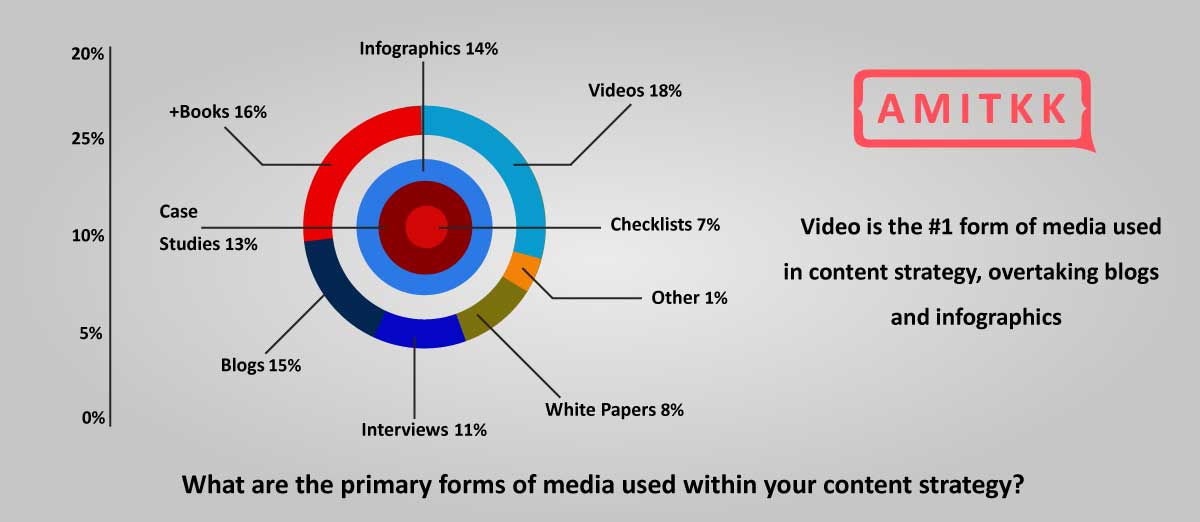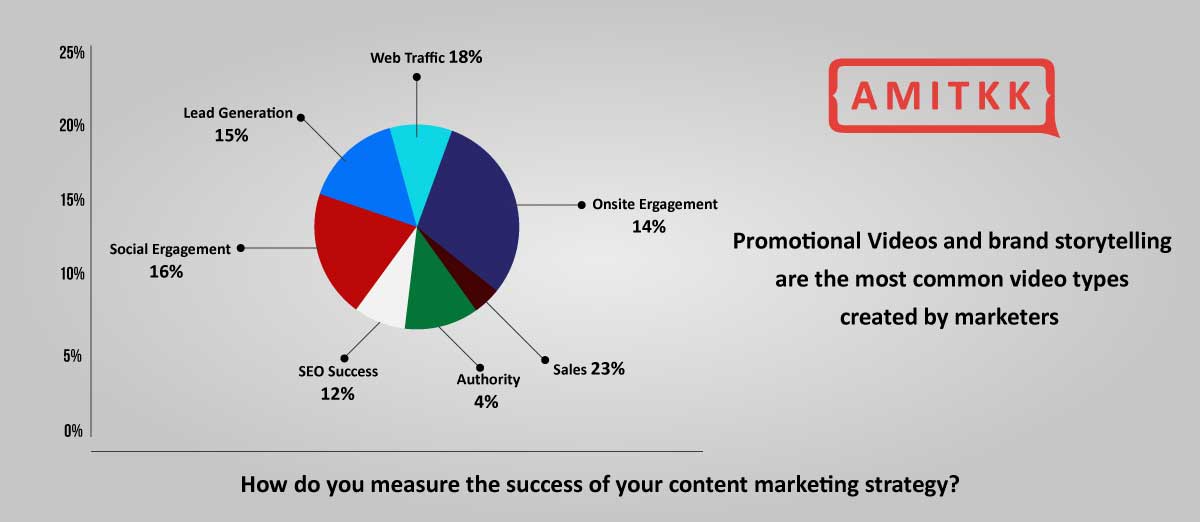Companies can buy temporary advertising in search results from Google and Bing (Adwords, Bing Ads), offering clicks to the highest bidders in incredibly competitive bids for $30 or more per click. SEO, on the other hand, can generate those clicks & organic searches at a much lesser cost and for a much longer period. Generating traffic via organic search is a smart method for developing a long-lasting brand.
However, to gain organic traffic, You must optimize your website's content to appear in search engine results. Every website homepage has visual material, and HTML source code referred to as on-page content. Text, services, tools, questionnaires, blog posts, ebooks, photos, and videos are all examples of content, but they all have to be high-value from the perspective of your consumers and search engines.
It doesn't have to be difficult to write by employing search engine optimization (SEO) best practices and using marketing analytical tools. This blog will deconstruct the subject and demonstrate how to optimize content for SEO that results in a variety of sectors.
What is the definition of Content Optimization?
The process of altering on-page copy, graphics, links, as well as code to assist search engines in ranking rank your websites higher is known as content optimization. Finally, this aids your target audience in locating you. It is also referred to as optimizing content for SEO.
The more effective material will be both Google and human-friendly.

Content Optimization for Non-Technical Users
The general quality of the information is included in non-technical content optimization. Understandability, article length, subject coverage, and the use of images and videos are all factors to consider. You can apply a quality scale to each item of material. Users, in the end, determine which piece of material best fulfills their requirements.
Note that some variables cause the lines to fade. The length of your article and the topics it covers indicate that your material is of high quality to search engines. Optimizing content for SEO, on the other hand, should always be designed with the consumer in mind. Increasing the number of words or themes addressed to improve ranks will result in negative user signals and a loss in ranking.
Headlines that Get Attention
Because you're writing material for something other than search engines, the headline is crucial. Yes, ranking is important, but the ranking isn't the aim. The ultimate goal is to have real people read your material and perform actions that benefit you. A well-written title would help a post rise in the rankings and enhance the likelihood that somebody you worry about will click on the item and read it.
But don't mutilate your headlines by putting the keywords at the start. People spend fewer than 6 seconds on average on a search results web page before acting, and they won't click on a bad headline, keyword, or no keyword. Remember that if no one clicks on your listing, it doesn't matter how advanced your rank is.
Meta Data
Adding metadata to your website is the most important component of on-page SEO. They are visible in search engines and are instrumental in influencing users to click on the link. A compelling title will invoke your website's interest in the user as it may solve a problem he is searching for. This very intelligent content writing makes a great deal of difference.
Page Meta Title
The page title appears at the top of a web browser and as the headline inside search engine results. The length of the title should ideally be 50-60 characters and should be your sales pitch for the page. A good title can be one of the most crucial elements in your SEO that convert impressions into clicks to boost your traffic.
Page Meta Description
Meta description describes the page in detail and appears along with the title in search results. Sometimes, search engines do not always utilize your meta description; providing them with the choice is still critical. A good description is a concise and enticing representation of what's inside to get people to come generally. A good meta description is generally composed of two complete sentences and should ideally be less than 160 characters.

Keyword Research
A classic SEO blunder is to spend time writing content for a site first, then 'optimizing' it with keywords later. But that's like making a sandwich and then picking what meat to put on it — it won't work, and the flavor will most likely be off!
The ideal technique for generating SEO-optimized articles is conducting keyword research and then creating content from scratch around those keywords. Use Google Ads Keyword Optimizer or Google Search Console's Performance evaluation to conduct keyword research. Those two tools may show you average search traffic for terms, keywords your site already ranks for, click-through rate (CTR), keyword phrases, and much more!
Where to Use Keywords
Use your primary keyword inside the first 100-150 words, including in headers, to help search engines relate your keywords to your article and find it relevant. Of course, it's also vital to naturally sprinkle keywords throughout the text. The keyword here is 'naturally.' Search engine algorithms genuinely penalize keyword stuffing. Advertisers are prone to falling into this trap.
Keep in mind that SEO should not jeopardize your thoughts' uniqueness or your material's readability. Not to utilize your target keywords quite often as necessary, even if they don't fit, but to mention them sufficient times that search engine crawlers think your content is relevant.
Does Keyword Density Make a difference?
Keyword density is one of the most crucial aspects of developing content that is properly optimized for SEO. It is a sophisticated way of saying: incorporate your keywords into your text.
Several SEO companies say your keywords must make up 1-2 percent of the entire text content density. If you use less, Google may not be able to tell what the essential keywords are, and if you use more, it may appear spammy or like keyword stuffing.
It is a solid rule of thumb and a fair percentage to aim for, but it's not an exact science. There's no evidence that Google's ranking algorithm takes keyword density into account. Concentrate on writing regarding your keywords and using them as frequently as feels natural. The best thing you can do is make sure your writing appears organic and is better suited for your human visitors. Incorporate your keywords as often as feels natural, and Google will have no trouble understanding.
Optimize Your Title Tag
Make your title tag - also referred to as a meta title or a page title - intriguing and relevant to the rest of the information on your page to enhance your SEO ranking. To demonstrate relevance, select relevant keywords at the beginning of the title and minimize keyword stuffing. Note that your title should be between 50 and 60 characters long; anything longer will be cut off in the SERPs (SERP). Each page must have its title.




 Seo Company In Delhi
Seo Company In Delhi  Guest Post
Guest Post  Local Seo
Local Seo  Technical Seo
Technical Seo  Video Seo
Video Seo  Seo Company In Noida
Seo Company In Noida  Seo Company In India
Seo Company In India  Seo Company In Mumbai
Seo Company In Mumbai  Seo Company In Kolkata
Seo Company In Kolkata  Seo Company In Ahmedabad
Seo Company In Ahmedabad  Seo Company In Pune
Seo Company In Pune  Seo Company In Jaipur
Seo Company In Jaipur  Free Website Analysis
Free Website Analysis 




